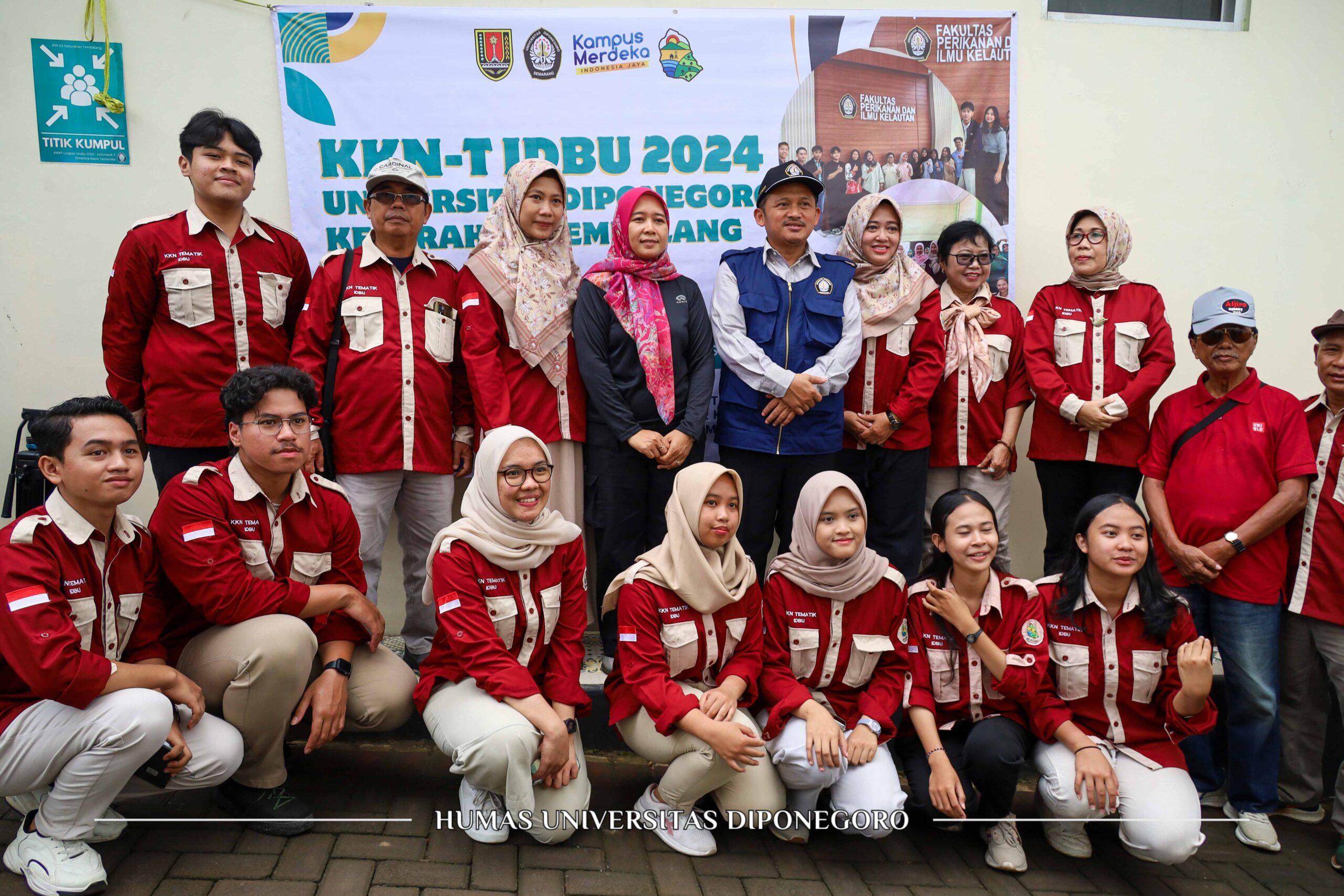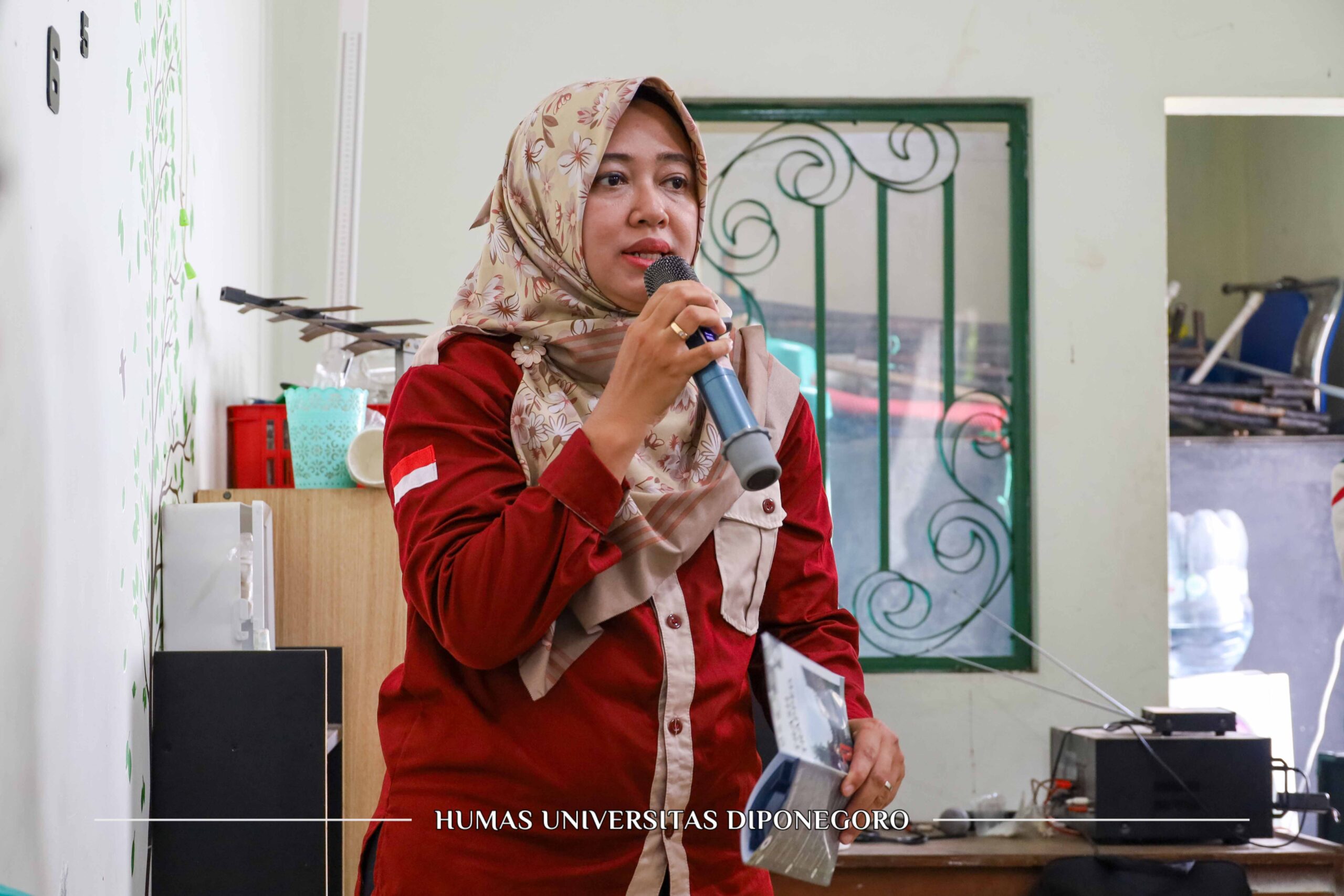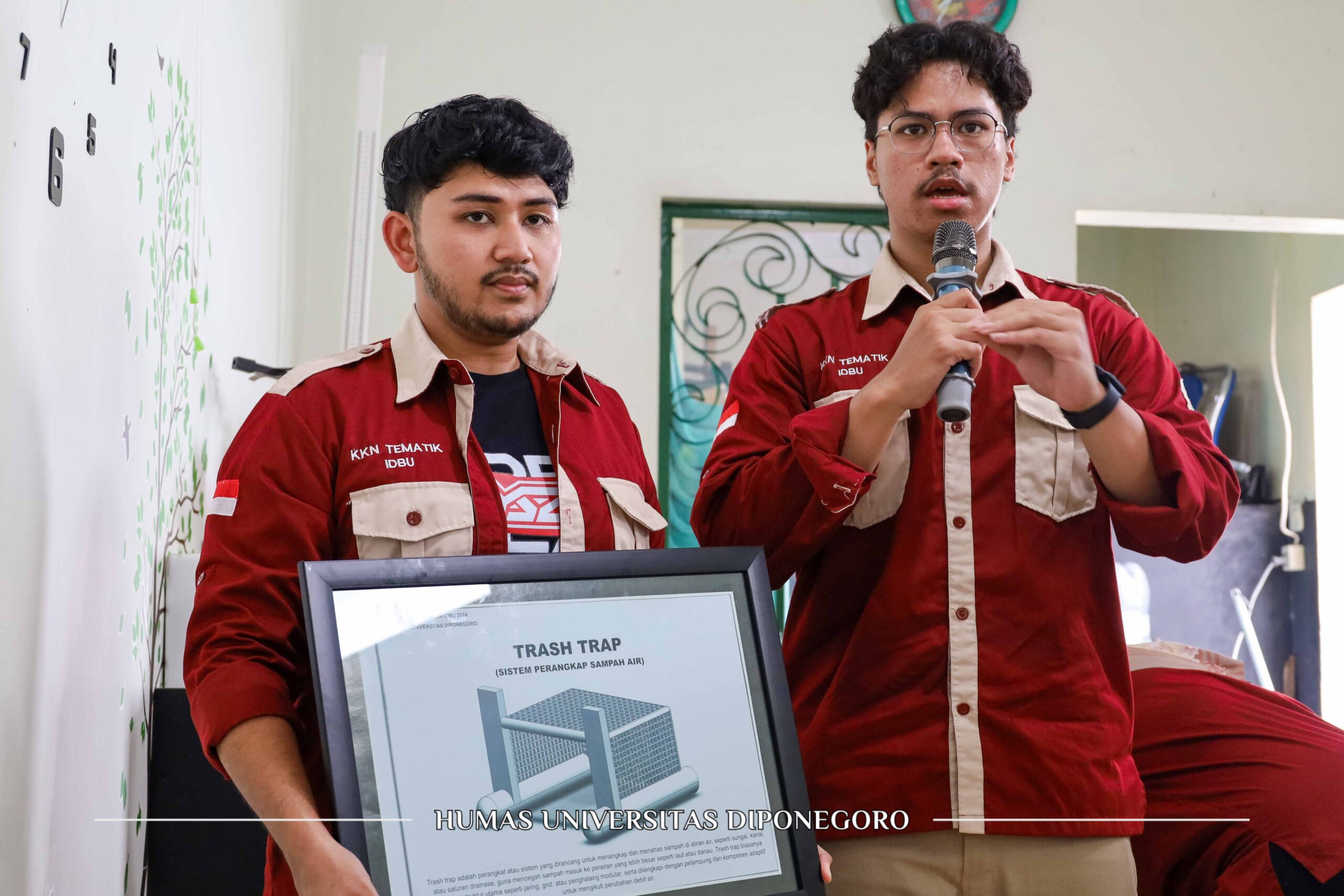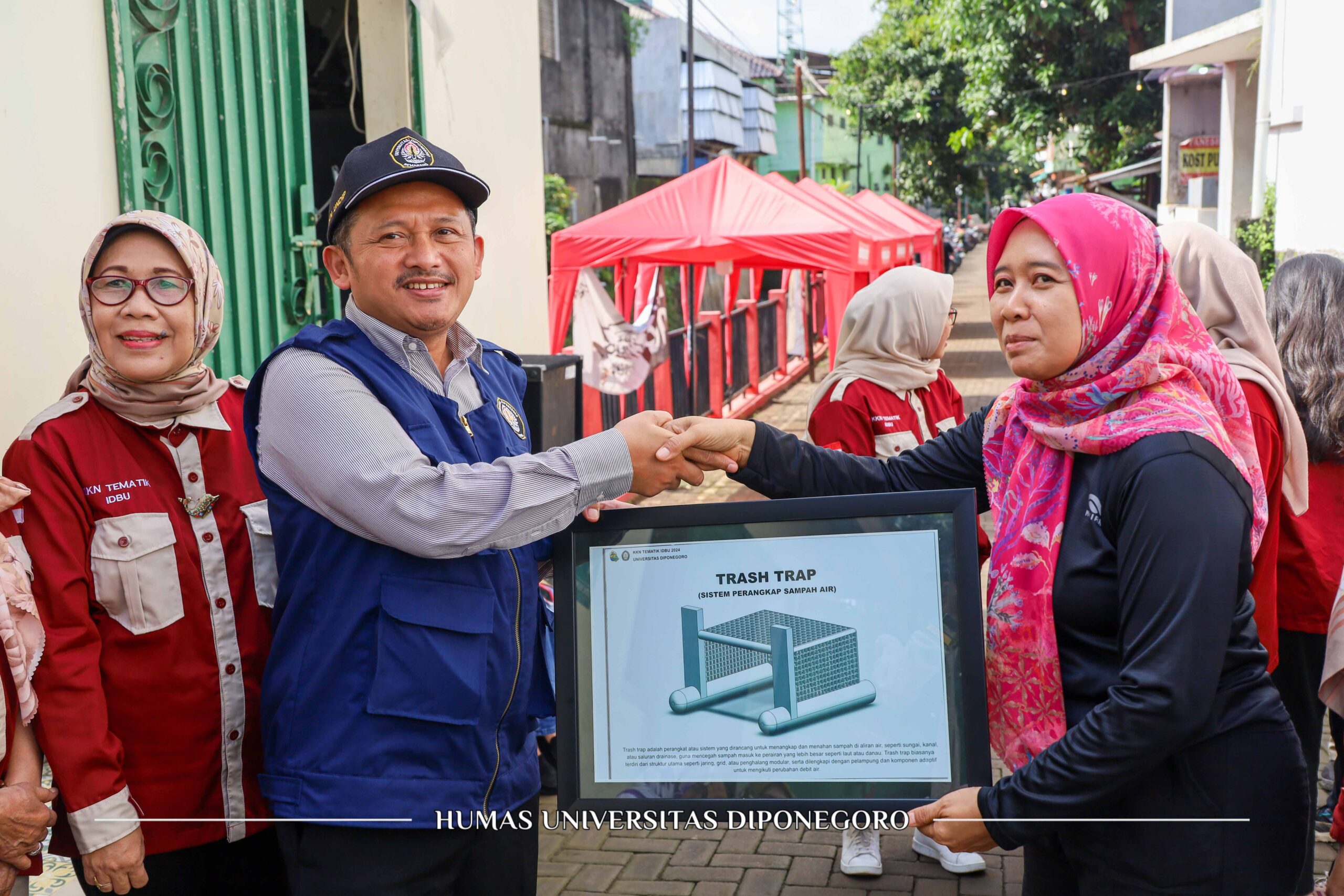Semarang – Universitas Diponegoro launched the 2024 Thematic KKN-IDBU (Kuliah Kerja Nyata – Iptek bagi Desa Binaan UNDIP) Program with the theme “Community Empowerment through Optimizing and Conserving Public Water Resources around the UNDIP Tembalang Campus, Semarang.” This program, in collaboration with the Tembalang Subdistrict, aims to improve community welfare by leveraging local potential, particularly in water resource conservation, while supporting clean water programs in the Kali Gambir and Sikatak River. The initiative also seeks to enhance public health related to water resources.
As part of this initiative, a ‘Trash Trap’ equipment handover event was held on Friday, December 13, 2024, at the Hasta Karya Thematic Village in RW 03, Tembalang Subdistrict. The ‘Trash Trap,’ specially designed by the KKN-T IDBU UNDIP student team, is an innovative tool aimed at improving waste management and environmental quality in the Kali Gambir area. The device functions as a barrier that traps trash in waterways such as rivers, canals, or reservoirs, preventing waste from flowing downstream into sensitive areas or the ocean. This activity symbolizes the collaborative effort between UNDIP’s academic community and residents in preserving the environment.
At the handover ceremony, Prof. Dr.-Ing. Suherman, S.T., M.T., Chair of UNDIP’s Institute for Research and Community Service (Lembaga Penelitian dan Pengabdian Masyarakat / LPPM), praised the KKN-T IDBU student team for their ‘Trash Trap’ innovation. He emphasized the benefit of the tool, which was created by engineering students to address waste management and flooding in the UNDIP area.
“This ‘Trash Trap’ is part of the Clean River program, especially for areas prone to flooding. With this tool, we hope to reduce or solve flooding problems while improving the cleanliness of the environment,” Prof. Suherman conveyed.
Tembalang Subdistrict Head Asih Sri Windarti, S.T., expressed gratitude and appreciation for the KKN-T IDBU team’s efforts to address local challenges in waste disposal. She was concerned about the habits of the people living around UNDIP Tembalang, who need to be more orderly in disposing of garbage.
“Trash bins are available, but they are located above the river due to limited space. This ‘Trash Trap’ is very helpful, filtering trash that falls into the river. It will reduce waste in the Kali Gambir stream from Pedalangan, which flows towards UNDIP’s jogging track area and reservoir,” she explained.
Asih added, “We hope the ‘Trash Trap’ will help the community maintain a clean and beautiful environment. In the future, Hasta Karya Thematic Village RW 03 can become a unique and exemplary thematic village in Tembalang.”
Dr. Churun Ain, S.Pi., M.Si., a supervising lecturer from the Faculty of Fisheries and Marine Science (FPIK) UNDIP, highlighted the program’s goal of conserving water resources around UNDIP, starting with Kali Gambir, Sikatak River, and ultimately reaching the UNDIP educational reservoir.
“The focus on the Kali Gambir area aligns with UNDIP’s mission to bring tangible benefits to the community, particularly in the campus surroundings. This initiative reinforces UNDIP’s tagline, ‘Dignified UNDIP, Beneficial UNDIP,’ and makes a real impact on society,” he said.
Dr. Churun noted that the ‘Trash Trap’ handover involved KKN-T IDBU students, subdistrict officials, and residents. The device is expected to serve as an effective solution to waste issues in Kali Gambir while fostering ecological awareness among the community.
“Other activities under the thematic KKN program include water filter socialization and waste management training, such as how to add value to waste materials,” he explained.
In conclusion, Dr. Churun stated, “Trash Trap is a tool designed to help the community collect waste from the river, addressing one of the biggest challenges in waterways. This tool will not only improve environmental cleanliness but also prevent flooding.”
With the successful handover of the ‘Trash Trap’ equipment, UNDIP hopes that the Tembalang Subdistrict community will remain actively engaged in preserving water resources and developing local innovations that contribute to environmental sustainability. (DHW)













